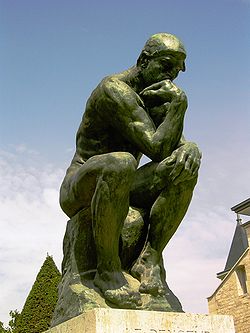Ayurvedic Pulse Diagnosis
The art and science of Ayurvedic pulse diagnosis is extremely subtle, and therefore extremely intimidating. We're talking about putting all of your awareness into the small space at the tip of your fingers and feeling the pulsation of life in the radial artery at seven different levels and in three or five positions on each finger. Through the pulse, a skilled practitioner can discover a patient's genetic constitution, present imbalance, mental state, and the health of the internal organs and tissue systems.
Choiceless Awareness
 Reading the pulse requires complete attention, focus and sensitivity. It also requires removing all distractions and preconceptions from the experience. During the weekend pulse seminar, Dr. Lad referred to this state as "choiceless awareness." While taking the pulse, one should not choose any particular findings. It's natural to use what we know about someone else to make our own conclusions about who they are. Especially after gathering a person's medical history and current symptoms, I may draw conclusions about the causes and progression of their current health situation prior to taking their pulse. While that's important for putting together all of the pieces of their health puzzle, I don't always remember to leave that behind when I'm feeling their pulse. Because pulse diagnosis is such a subtle art, the mind needs to be totally empty in order to hear what the pulse is actually revealing. With practice this weekend, I was able to listen to the first thoughts that came into my mind while feeling the pulse, and not question myself with my analytical mind. Then my diagnosis was right on the mark.
Reading the pulse requires complete attention, focus and sensitivity. It also requires removing all distractions and preconceptions from the experience. During the weekend pulse seminar, Dr. Lad referred to this state as "choiceless awareness." While taking the pulse, one should not choose any particular findings. It's natural to use what we know about someone else to make our own conclusions about who they are. Especially after gathering a person's medical history and current symptoms, I may draw conclusions about the causes and progression of their current health situation prior to taking their pulse. While that's important for putting together all of the pieces of their health puzzle, I don't always remember to leave that behind when I'm feeling their pulse. Because pulse diagnosis is such a subtle art, the mind needs to be totally empty in order to hear what the pulse is actually revealing. With practice this weekend, I was able to listen to the first thoughts that came into my mind while feeling the pulse, and not question myself with my analytical mind. Then my diagnosis was right on the mark.
Santa Fe Epiphanies
As I drove back to Santa Fe from the Ayurvedic Institute in Albuquerque, I was struck by how much more accurate and sensitive my pulse reading had become over the weekend by removing myself from the experience and placing more trust in my intuition. How often we all second guess ourselves, because we are duped into believing that our analytical mind knows more than our first instincts. What a wealth of knowledge lies deep at that level that we ignore because we doubt ourselves and therefore don't even look there!
I was taught a similar lesson back in 1992 when I was studying at the American Sanskrit Institute spending many hours a day translating ancient Vedic texts. Many people with a strong foundation in vocabulary and grammar would find themselves struggling to translate a line word by word. I was having the experience wherein if I read the line in Sanskrit and then translated it as the first line that came into my head, I was always right. I encouraged the students who were having a harder time to stop over-thinking it and try to say the first thing they thought, and amazingly it became easier for them to get it right.
Remembering Versus Learning
I don't know exactly how instinct works, but I suspect that it has something to do with remembering versus learning. I believe that for most people, this is not the first nor last birth in human form. Therefore, this is not the first time that we've had to learn something. Maybe a lot of the time, we're actually remembering something as opposed to learning it for the first time, and so the learning becomes easier when you quiet the mind and tap into the memory that exists as intuition. As modern physics is now proving, time is not linear, so all knowledge is existing at the same time and it's just a matter of accessing it.
I propose we all try a little experiment and for the next week try to go with instinct and intuition more often. Try to put aside your analytical mind (when appropriate!) and simply listen to the first thing that comes into your head. See how the results of your decision making or choices feel different during this experiment. Maybe you will find your work or your relationships become easier, or lead to greater outcomes. Leave a comment below to share what you learn when you stop thinking for a while!

